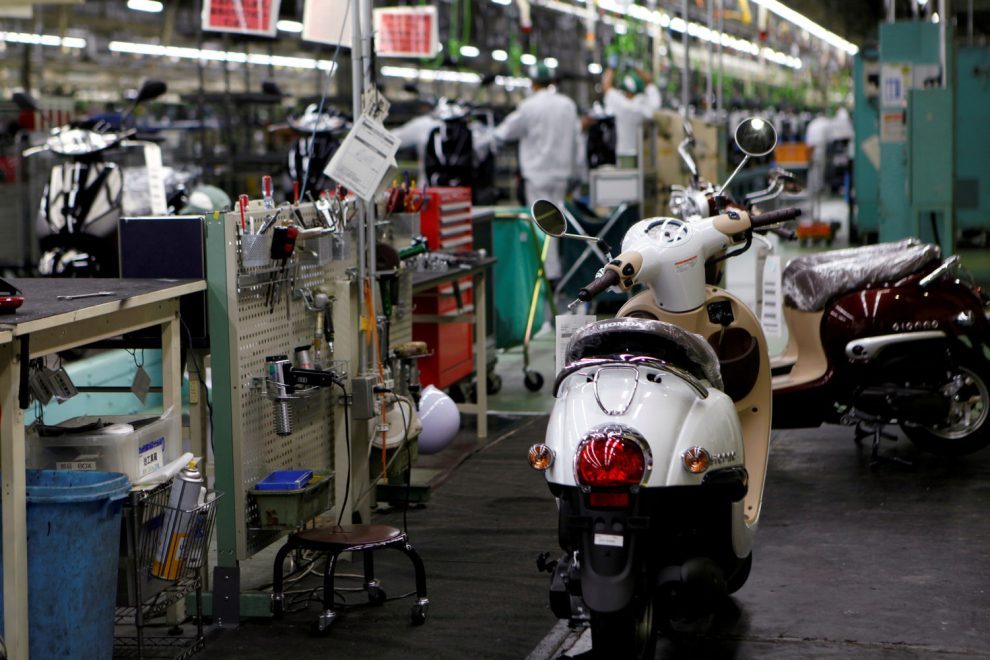Japanese business confidence worsened for the first time in nearly two years in the first quarter, a central bank survey showed, as companies were hit by supply disruptions and surging raw material costs caused by the Ukraine crisis.
Companies expect conditions to worsen further three months ahead, results of the Bank of Japan (BOJ) tankan showed on Friday, heightening the chance the bank will slash its growth forecast in a quarterly review scheduled later this month.
The tankan dropped to a level of plus 14 in the first quarter from the previous three months’ plus 17, marking the first fall since the June 2020 survey. This compares with a median market forecast of plus 12.
The survey also showed firms expect inflation to hit 1.8% a year from now, up from 1.1% in the December poll and the highest forecast on record – highlighting Japan’s rising upward price pressure.
Big manufacturers expected conditions to deteriorate further in the coming three months, with a predicted index of plus 9. The downward trend was echoed by that of large non-manufacturers, slipping to plus 9 from a previous plus 10.
“We believe the latest tankan results will have only a limited impact on the BoJ’s assessment of economic conditions and its policy conduct,” said Barclays analysts Tetsufumi Yamakawa and Kazuma Maeda.
“We expect the BoJ to stick with current monetary easing through our forecast horizon to fiscal 2023,” they added.
The survey said the average of exchange rate forecasts for the fiscal year starting April stood at 111.93 yen against the US dollar, marking a large contrast with recent days.
On Friday the yen traded at around 122 per dollar after plunging to a seven-year low of 125.1o earlier in the week.
Food, automotive and electric machinery makers saw sentiment worsen, as well as construction and retail sectors, in a sign of the wide-ranging hit from surging import costs.
However, Capital Economics Japan economist Tom Learmouth noted that “non-manufacturing sentiment held up better-than-expected during the Omicron wave” and the labour market continued to tighten.
“Indeed, we think output will rebound strongly in the second quarter,” he added.
• George Russell, with Reuters
READ MORE:
Weak Yen a Sign of Japan’s Poor Fundamentals: Ex-IMF Official
Tokyo to Stick With Russian Gas Project – Japan Times
Japan Moves to Secure Vital Materials Over War Shortages
























